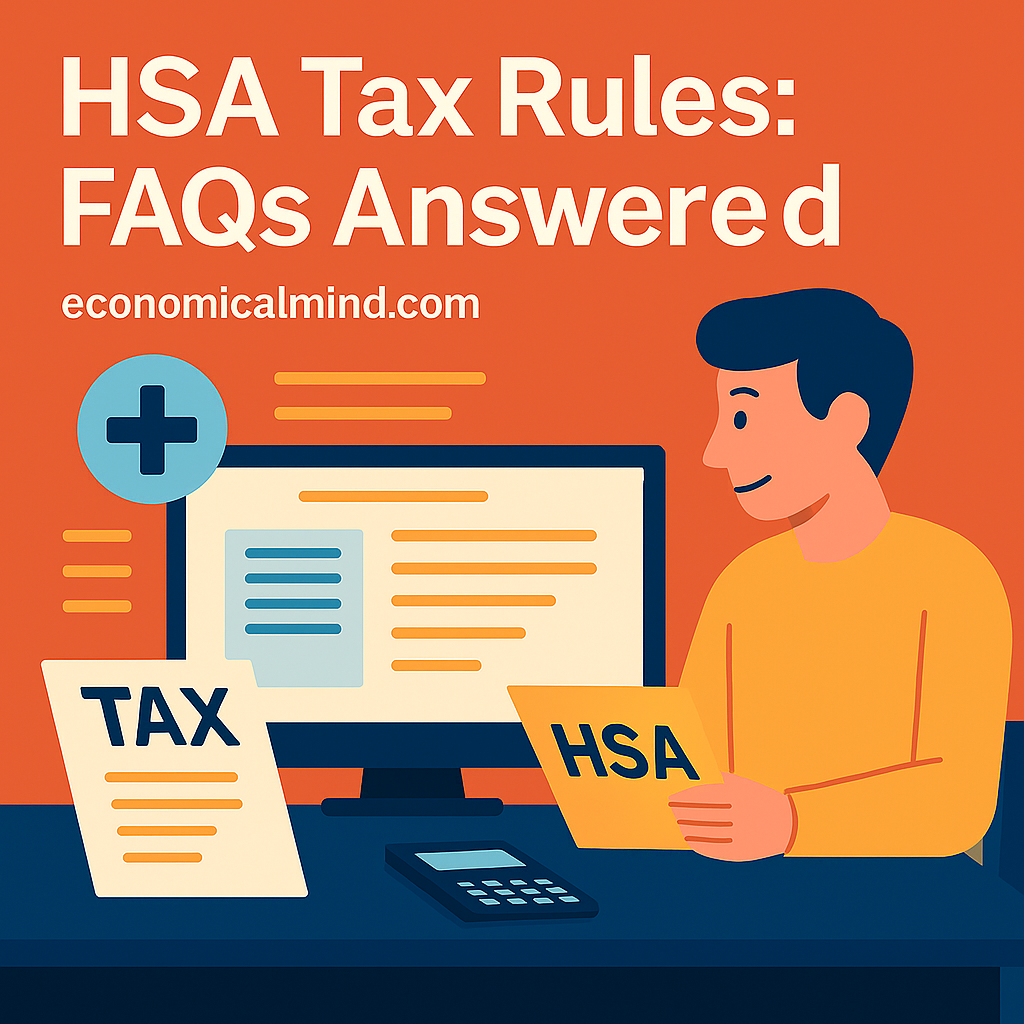
A Health Savings Account (HSA) is one of the most powerful tax-advantaged tools available—but many people aren’t taking full advantage of its triple-tax benefits. Whether you’re using it for medical expenses now or as a stealth retirement fund later, understanding the tax rules can help you maximize every dollar.
This FAQ guide breaks down how HSAs work, what’s eligible, and how to stay compliant with IRS guidelines.
What Is an HSA?
An HSA (Health Savings Account) is a special savings account that allows you to set aside pre-tax money for qualified medical expenses. It’s available only to those enrolled in a High-Deductible Health Plan (HDHP).
The best part? HSA funds never expire, and unused balances roll over year after year.
How Do HSAs Save on Taxes?
HSAs come with three major tax advantages:
- Contributions are tax-deductible. Money you contribute reduces your taxable income.
- Earnings grow tax-free. Interest and investments within the account aren’t taxed.
- Withdrawals for qualified expenses are tax-free.
This combination makes HSAs more tax-efficient than many retirement accounts.
Who Qualifies for an HSA?
To contribute to an HSA, you must meet these IRS conditions:
- Be covered by a High-Deductible Health Plan (HDHP)
- Have no other disqualifying health coverage (like Medicare)
- Not be claimed as a dependent on someone else’s tax return
If you meet those criteria, you can open an HSA through your employer or a bank, credit union, or investment firm.
How Much Can You Contribute Each Year?
For 2025, the IRS limits are:
- $4,300 for individuals
- $8,550 for families
- $1,000 catch-up contribution for those aged 55 and older
These contributions can be made by you, your employer, or both combined.
What Can HSA Funds Be Used For?
HSA funds can pay for a wide range of qualified medical expenses, including:
- Doctor visits and copays
- Prescription medications
- Dental and vision care
- Physical therapy
- Medical equipment like crutches or blood pressure monitors
You can even use HSA funds for COBRA premiums, long-term care insurance, or Medicare premiums (after age 65).
What Happens If You Use HSA Funds for Non-Medical Expenses?
If you withdraw HSA money for non-qualified expenses before age 65, you’ll owe:
- Regular income tax on the amount
- 20% penalty
After 65, you can use HSA funds for anything without penalty—but withdrawals for non-medical use will still be taxed as income.
Can You Invest HSA Funds?
Yes. Once your account reaches a certain balance (usually $1,000–$2,000), you can invest in mutual funds, ETFs, or stocks through your HSA provider.
This allows your contributions to grow over time, making an HSA a valuable retirement planning tool as well as a medical savings vehicle.
How Do You Report HSA Contributions and Withdrawals on Taxes?
Your HSA custodian will provide key tax forms each year:
- Form 5498-SA: Reports contributions
- Form 1099-SA: Reports withdrawals
- Form 8889: You file this with your tax return to calculate deductions and verify qualified expenses
Keeping accurate records of your expenses ensures a smooth tax-filing process.
Are HSAs Better Than FSAs?
While both accounts help cover medical expenses, HSAs offer greater flexibility:
- Funds roll over indefinitely (unlike FSAs, which often expire annually)
- You own the account, not your employer
- HSAs allow investments for long-term growth
For anyone eligible, HSAs are typically the superior tax-saving option.
Bottom Line
HSAs are more than just a place to stash medical savings—they’re one of the most tax-efficient investment vehicles available.
By learning the contribution rules, using funds strategically, and investing wisely, you can turn your HSA into a powerful tool for both healthcare and retirement security.
